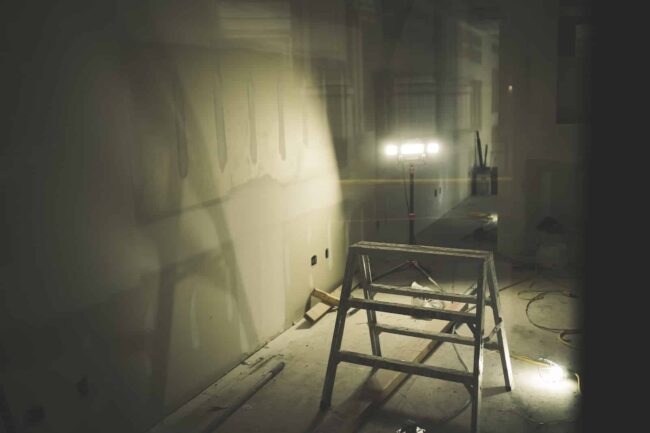Wondering how long it takes for drywall to dry? Whether you’re dealing with recent water damage or have just completed some drywall work, the drying time can vary based on several factors. Understanding the process and knowing the optimal conditions for drying can help you ensure a quicker, more efficient drying cycle. This article explores the factors affecting the drying time and offers tips to accelerate the process.
Table Of Contents
−The Basics of Drywall Drying Time
Drywall typically takes around 24 hours to dry under ideal conditions. The ideal temperature is about 70°F, with humidity levels at 70% or below. The type of drywall mud you use also impacts drying time—some take just minutes, while others may need days, especially when it’s humid or raining outside.

For those living in larger homes, be prepared for up to four days of drying time. Importantly, some signs of water damage might not be visible for a week or more after drying. Using dehumidifiers or fans, along with proper ventilation, can help expedite this process.
The Nitty-Gritty of the Drying Process
The structure of drywall includes gypsum and paper, which swell and soften when wet—a process called “hydration.” This can result in mold growth if not addressed promptly. Here’s a quick overview:
- Remove Excess Moisture: Start with a wet/dry vacuum or shop vac to eliminate standing water.
- Circulate Air: Use fans to disperse air and promote evaporation. If possible, open windows or use an exhaust fan.
- Patch and Repair: Once the drywall is dry, use a joint compound or spackle to patch any water damage.
- Let Compound Dry: This takes 24-48 hours, depending on temperature and humidity levels.
Factors That Impact Drying Time
Temperature
The mud will dry slower in colder rooms. Conversely, high temperatures can cause the mud to dry out too quickly, causing cracks. The sweet spot for room temperature is between 70 and 80°F.
Humidity
Higher humidity levels can significantly prolong drying times. Make sure your workspace is well-ventilated to avoid moisture buildup.
Ventilation
Good air circulation is essential for speeding up the drying process. Make sure to keep windows and doors open or use fans to maintain airflow.
Type of Paint
Latex paints dry much faster than their oil-based counterparts. So if you’re painting your drywall, opt for latex to expedite drying.
Practical Tips for Speeding Up the Process
- Use Quick-Setting Mud: This type can dramatically reduce drying time.
- Apply Thin Coats: Thinner coatings dry faster.
- Use a Drying Gun: These tools apply electric heat to speed up drying. Always follow manufacturer guidelines for safe usage.
- Consider Environmental Conditions: Work in areas with lower humidity and higher temperatures if possible.
To Use a Dehumidifier or Fan?
Both dehumidifiers and fans are effective in removing excess moisture. However, a dehumidifier is generally more potent and might be necessary for severely wet drywall. It’s crucial to keep windows and doors closed during this process for optimal results.
Precautions for Future Moisture Issues
After drying your drywall, it’s essential to prevent future moisture exposure. Regularly check your dehumidifier, seal any cracks, and utilize a moisture meter to ensure a dry environment.
Does Heat Affect Drying Times?
Yes, a hotter room will accelerate the drying process. However, if the room’s temperature is too high, your drywall compound might become brittle and prone to cracking.
Conclusion
Drywall drying times can vary, but you can typically expect a 24-hour drying period under optimal conditions. The process can be accelerated through proper ventilation, the use of fans or dehumidifiers, and selecting quick-drying mud types. For serious water damage, consulting a local water dryout specialist or a general construction expert is advisable.

Editorial Staff
Our writers, editors, content managers, and SEO specialist. We all take part in crafting amazing articles. We spend hours ensuring that each article is based on facts, researched, and thorough. You'll never want to click the back button to look for more answers other than here!
